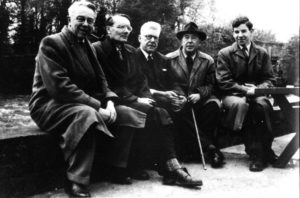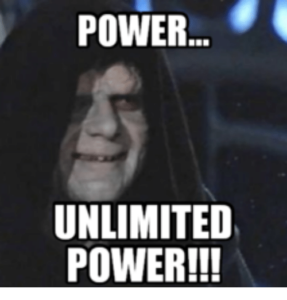I’ve had lots of emails this week from people saying they’re considering starting up a group, which I am THRILLED about!
Some start up advice: I think it’s great when the kids feel that the club is ‘their’ club. It’s hard to freely express yourself if you don’t feel comfortable and in control. It’s like trying to relax in someone else’s house. So I think it’s lovely for kids to feel that the club is their ‘tribe’. It makes the members closer friends, and I know our group has become a safe space for some of them where they can be themselves in a way they don’t feel comfortable being in school, and that’s an incredible gift to give anyone.

So here are some ways you can encourage the kids to take ownership of the group:
Let them choose their own group name
You can give them some examples to choose from and let them suggest their own. For inspiration, some famous writing groups and their famous members include:
- The Bloomsbury Group (Woolf & Co)
- The Dill Pickle Club (William Carlos Williams)
- Stratford-on-Odeon (Hemingway, Joyce, Pound, Stein and Fitzgerald)
- The Inklings (Tolkien and Lewis)
- The February House (Auden, McCullers)
- The Factory (Ginsberg and Bob Dylan)

Some suggestions I got online:
- The Scribble Society
- Masters of Text
- Always Write
- Plot Twists
- Novice Narrators
- From Left to Write
- The Pencil Pack
- Full of Words
- Storytellers
- Unblocked
- Penning Pals
- Write On
- Wordsmiths
- Best Sellers
- Authors Anonymous
- The Writers League
- Scribe Tribe
- Right 2 Write
- Freedom of Speech
- Writing Warriors
- WordPlay
- From Pen to Paper
Make a group contract
I don’t really want to fill anyone’s life with more rules, or spend my time enforcing them, so we really just have one hard and fast rule at our club which is:
It’s up to you what you write, and whether you write, but you can’t interrupt anyone else’s writing time.

That seems to cover most issues, but it can be helpful, ice-breaking, and fun for a new group to create their own group contract. It lets the kids feel ownership of the group and also sets expectations for behaviour and reassures them that they have freedom here that they mightn’t in the classroom and that the group will be directed by themselves. You could spend a session discussing what they want out of the group and drawing it up on an A3 sheet, decorating it with Sharpies or whatever they prefer.
It’s up to them and you what you include, they can be silly or serious. Just some possible examples:
- This group is a safe space for all people and we welcome anyone who wants to write
- All feedback will be kind and helpful
- Shoes need not be worn
- You can sit where you like
- If you don’t want to write today, you can read instead
- When someone is sharing their work we listen respectfully
- Headphones are allowed
- Confidentiality Clause: What happens in writing group, stays in writing group
- No one will be forced to read their work
- Members can ask another member or group leader to read their work aloud for them
- Nom de plumes are permitted
- Choice of name and pronoun will be respected by the group
- We are a supportive community of writers
- Members may ask for one-to-one feedback from a group leader at any time
- Snacks are for sharing
- No one will be judged for their choice of snacks
- Any member has the right to ask the group to be quieter
Regarding this last one, we have a thing, suggested by one of our members, where if someone feels the room is too noisy, they can raise their hand and make a sign with their fingers:

And everyone will respect that and be quieter. When you see the sign, you do it too, so the message gets passed around. This is great for shy kids who may not be confident raising their voice in a group. This was suggested by one of our members and I use it too if they’re talking and I want their attention.
Merch!
If you have some funds, make badges with the group name on that they can wear around school (free advertising for your group!) or personalised pencils.
Put them in charge

I had an email this week from a school where the kids run the club! It was started by staff but some of the older writers took over and two have gone on to do creative writing at uni, which is just amazing!
I’d recommend starting the club with an adult in charge, just to establish what a meeting should look like, but if the kids are comfortable and working well together I don’t see why they shouldn’t eventually run things themselves. There’s nothing I do at my group that they couldn’t do themselves since really we just turn up, write, read and pat each other on the back.
AGM
If you want to, have an annual meeting where you discuss how things are going and if there’s anything they’d like to change or try. Involve them in any decisions, stressing that this is their club. The guideline I go by is that it’s my duty to make sure the club has a conducive atmosphere for kids who want to write. If anything is disrupting that then I feel no guilt whatsoever about putting my foot down over it, but otherwise, I discuss any decisions or changes with the group.
Do remember that all AGMs should be accompanied by copious amounts of cake. (And I challenge you to match this Tea Party thrown by the Victoria College Belfast.)

If you have any other suggestions that have worked for you, do let me know!
It’s SO cool that there are some new writing groups being set up as we speak! As someone who didn’t have a writing group at school when I was a teen (*sniff*), I know there are some kids at your school right now who will be SO grateful for this. On their behalf, thank you, thank you, thank you!!

Leave a Reply